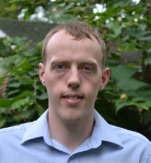
Date:
Location:
Title:
abstract
The development of an ever-increasing ability to control the behavior of electrons in semiconductor materials has driven more than half a century of relentless progress in technology. Realizing similar levels of control over charge carriers in correlated solids, where the motion of an electron is inherently linked to those of its neighbors, promises enormous new possibilities for multi-functional technologies. However understanding, and ultimately engineering, their interacting electronic states remains a major challenge. Spurred by advances in atomic layer-by-layer materials synthesis, it has now become possible to fabricate new “designer” correlated solids which do not have an analogue as bulk materials. Combined with advanced spectroscopic probes, such artificial quantum materials provide a sensitive test-bed of the quantum many-body problem in solids, and open new routes to tune emergent properties. I will discuss two main examples aiming to show the potential of this approach: studying the electronic structure evolution across a nanoscale thickness-driven metal-to-insulator transition in a rare-earth nickelate [1], and tuning the coupling with bosonic modes of an oxide ferromagnet [2]. Together, these shed new light on the interplay between different quantum degrees of freedom in structured oxide materials.
[1] King et al., Nature Nano. 9 (2014) 443
[2] Riley et al., in preparation
bio
Phil King is a Reader at the University of St Andrews, UK. He graduated with an MPhys degree from the University of Oxford, UK, in 2005, and a PhD in Physics from the University of Warwick, UK, in 2009. After a postdoctoral position with Prof. Felix Baumberger in St Andrews, he was awarded a Kavli Postdoctoral Fellowship at Cornell University, working with Profs. Kyle Shen and Darell Schlom on molecular-beam epitaxy and angle-resolved photoemission studies of transition-metal oxide heterostructures, before taking up a faculty position in St Andrews in 2013. His research is focused on imaging and manipulating the electronic structure of quantum materials, including systems with strong electronic correlations, strong spin-orbit materials, and topological solids. He holds a University Research Fellowship from the Royal Society, a Starting Investigator grant from the European Research Council, and a Research Leadership Award from the Leverhulme Trust. He has also received a number of prizes for his work, including the Roy Prize of the UK Institute of Physics (2009), the Gerhard Ertl Young Investigator Award of the Deutsche Physikalische Gesellschaft (2013) and a Philip Leverhulme prize (2015).
Hosted by Susanne Stemmer. Download event flyer.



